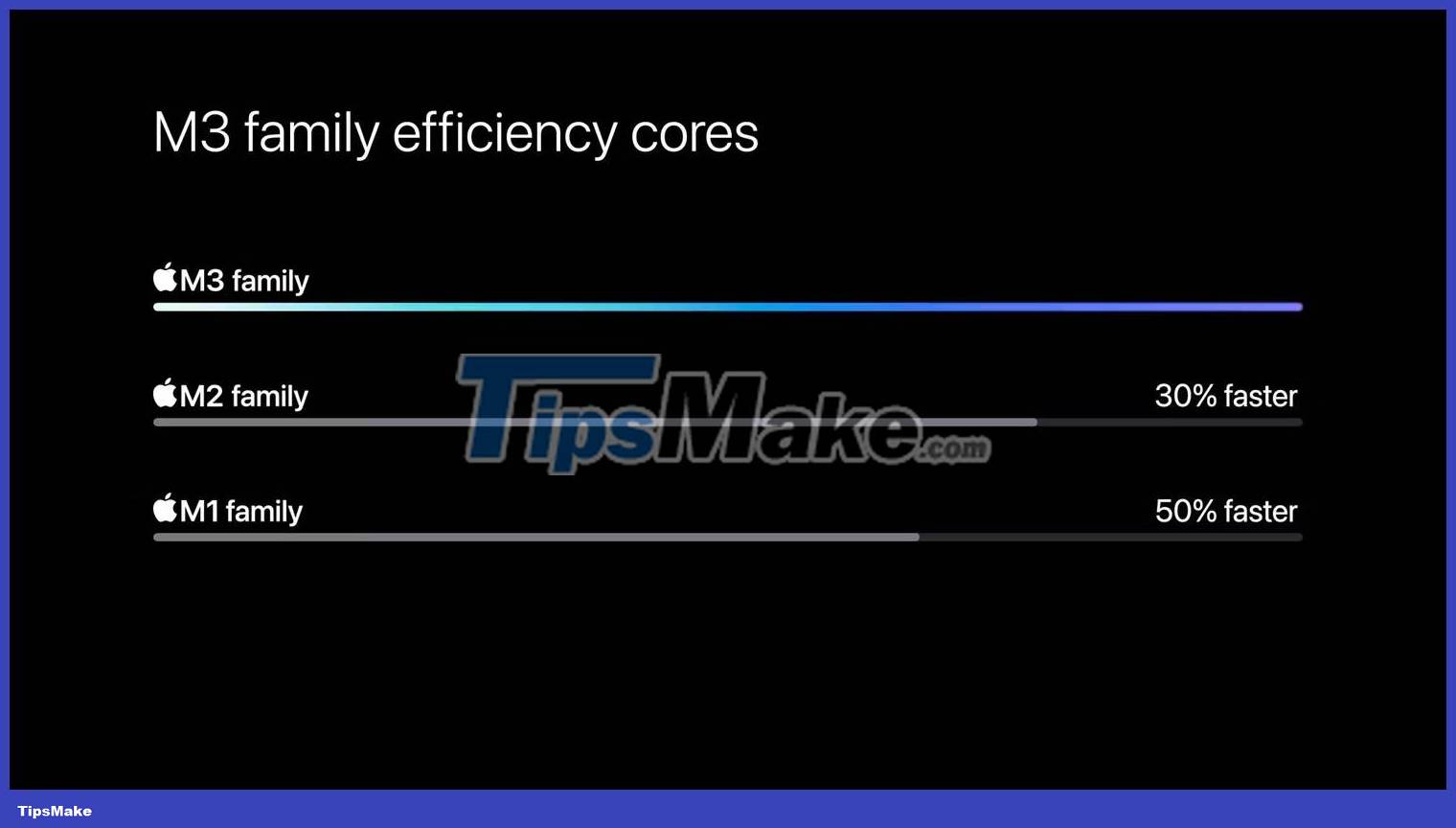Differences between Apple M3, M3 Pro and M3 Max chips
Apple announced the M3 chip line at its "Scary Fast" Mac event on October 30, 2023. Like previous generations, Apple offers three variants of the M3 chip: M3, M3 Pro, and M3 Max. But if you want to learn the differences between them so you can buy the right Mac, continue reading the following article.
Compare specifications of M3, M3 Pro and M3 Max

The base M3 chip has an 8-core CPU and 10-core GPU that supports up to 24GB of unified memory. M3 Pro is an upgrade from the M3 chip, with up to 12-core CPU and 18-core GPU, supporting up to 36GB of unified memory.
However, the M3 Max is the most significant upgrade among them. The M3 Max can accommodate up to 16 CPU cores and 40 GPU cores with support for up to 128GB of unified memory.
The M3 chip series is built on a 3nm process and supports features such as Dynamic Caching and hardware-accelerated Ray Tracing. Dynamic Caching does not use standard memory allocation. Instead, it uses exactly the amount of memory each task requires, improving performance.
Performance difference between M3, M3 Pro and M3 Max

The base M3 is the smallest chip in the lineup, while the M3 Max is the largest of the three. The larger the chip, the more memory it can handle. That's because larger chips have more transistors and can handle higher workloads.
To put it into perspective, the base M3 chip is the least powerful chip, but it's still a significant improvement over the same M2 chip. Those looking to buy a Mac for school, work, and even creative projects and light gaming will be satisfied with the performance of the base M3 chip.
With more CPU and GPU cores, the M3 Pro is definitely an upgrade from the M3. While most casual users probably won't notice much of a difference here - gamers, musicians, and creative professionals will be able to run more demanding applications on their Mac without What problem do you encounter?
The M3 Max chip is your best bet - until the M3 Ultra launches - if performance is your top priority. With more than twice as many GPU cores, the M3 Max can handle graphically demanding workflows with ease.
How does the M3 chip line compare to previous generations?

The M3 chips are certainly an improvement over the previous generation, but the performance gap is even bigger when you compare them to the M1 series of chips. The M3 chip's performance cores are about 15% faster than the cores on the M2 and 30% faster than the cores on the M1.
When it comes to efficient cores, the M3 chip is 30% faster than the M2 and 50% faster than the M1. The M3 chip line also has higher rendering capabilities, 1.8 times faster than M2 and 2.5 times faster than M1.
Finally, Apple claims the 3nm-based M3 chip can deliver the same multi-threaded CPU and GPU performance as the M1 while consuming only half the power.
Should you upgrade to a Mac with an M3 chip?
Apple advertises that the M3 chip is the most advanced chip for personal computers on the market today. That may be true in some respects, but if you already own a Mac with an M2 chip, you won't notice much of a difference unless you're a power user.
However, if you own a Mac running an M1 or an older Intel chip, a Mac running an M3 will be a significant upgrade that even casual users will notice.
You should read it
- ★ Future Macs won't use Intel chips?
- ★ Warning of the risk of businesses being attacked through micro-chips attached to servers
- ★ How to compare documents, compare files, compare folders with WinMerge
- ★ Reg command compare in Windows
- ★ Comparing Exynos vs Snapdragon: Why Android Phones Still Need Samsung Chips?